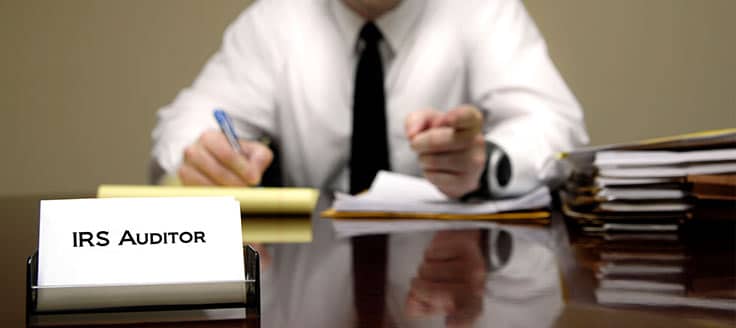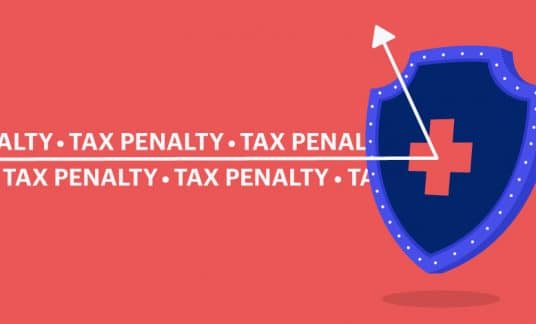If you’ve received an Internal Revenue Service (IRS) audit letter, it’s natural to feel a bit apprehensive. But don’t panic; honesty and good record-keeping are key to passing an audit.
Here’s what to expect after you receive an IRS audit letter. We’ll take you through the IRS audit process and prepare you to successfully navigate it and settle the matter.
What Is an IRS Audit?
An IRS tax audit is used to determine if an individual or business has reported all taxable income, expenses and deductions in compliance with federal tax regulations. If the auditor finds an error, the business may be forced to pay additional taxes in addition to penalties and interest.
The IRS has the authority to audit returns filed within the past 3 years. However, if the IRS auditors believe they have uncovered substantial errors, they can go back further, but usually not more than 6 years.
The IRS Audit Letter: What You Should Know
The IRS always notifies the subject of a tax audit by certified mail. The IRS doesn’t send emails or make telephone calls about an upcoming audit. Any communication other than regular mail is a scam, and you should immediately contact the IRS.
What Does an IRS Audit Letter Look Like?
A web search will return numerous IRS audit letter images. You can also find sample letters on websites; for example, TaxAudit has IRS sample letters organized by state, notice type and audit notice issue. In general, a legitimate IRS tax audit letter will include the following features:
- Your shortened tax ID number
- A notice or letter number
- A paper listing taxpayer rights
- The documentation or information that the auditor wants to examine
- Instructions for your next steps
- A date by which you must contact the IRS to set an appointment
- The auditor’s contact information
-
What Triggers an IRS Tax Audit?
The IRS uses algorithms and random selections to determine which tax returns to audit. These algorithms look for returns that have income and deductions that differ from the norms for the industry.
Here are 9 examples of things that can trigger an audit:
- Meal and entertainment expenses: IRS rules for validating meals and entertainment expenses are specific. You must record the names of people in attendance, the location and the purpose of the meeting. Anything less will be considered insufficient and will be disallowed.
- Using multiples of $100: While you don’t have to report everything to the penny, submitting numbers in multiples of $100 is a flag. For example, making a purchase at Staples for office supplies isn’t likely to add up to exactly $300. If you use a round number, the IRS knows you’re probably guessing and will want further information.
- Deductions for home office: Deductions for a home office will draw the attention of the IRS. Deductions for a home office can be exaggerated and hard to substantiate.
- Using your vehicle for business: If you’re going to use a vehicle for business and personal use, be sure to keep accurate logs with dates and mileage. It takes time and effort, but the data will be needed to validate the deduction as a business expense on your return.
- Reporting losses for several years: The IRS knows that startup businesses may report losses in the early years, but a continuous string of losses can be suspicious.
- Mismatch of 1099s: If you’re operating as an independent contractor and receive 1099 forms, make sure to report all of these as income. The IRS has the computer capability to match 1099s that are issued with the ones that are reported.
- Deviations from industry standards: The IRS algorithm looks for deviations from income and expense deductions typical for the industry.
- Self-prepared returns: The IRS targets small business owners’ self-prepared returns because of a tendency to underreport income.
- Charitable deductions: Large charitable deductions get immediate attention and must be supported with documents, such as a professional appraisal for artwork.

How to Survive an IRS Audit
Promptly Respond to the IRS Audit Letter
- Carefully follow the instructions and provide the requested information.
- Even if you don’t have all the documents they want, get in touch with the IRS before the deadline. Delaying your response might arouse suspicions that you have something to hide.
- If you need more time, request an extension. The IRS is often willing to grant a one-time 30-day extension.
Prepare the Relevant Tax Audit Information
- Gather all records that support the information on your tax return. The IRS has the right to examine all documents used to prepare your return.
- Put together copies of the specific documents the IRS requested in its audit letter. It’s important for you to maintain the original records.
- Don’t just hand over a stack of papers and let the auditor go through them. You don’t want the IRS going through your financial information any more than necessary.
- Organize everything by category and date to make it easier and quicker to find any documents the auditor may request. Neatness counts. Auditors appreciate a sense of order and may give you the benefit of the doubt in gray areas.
- If you can’t find or don’t have the necessary information, request duplicate copies from your bank, lender or even the government itself.
- For audits conducted by mail, request a delivery confirmation from your mail service.
Consult with a Professional
- Make arrangements with your tax preparer to attend the audit if it’s an in-person visit.
- When you’re dealing with an IRS audit, you also have the right to engage a professional tax preparer (such as a CPA) to advise and represent you before the IRS.
What to Expect During the IRS Audit Process
- An audit can be either done by mail or in person.
- Paper audits are usually the result of a minor error and can be easily fixed by providing additional documentation or making a payment if the additional tax due is small.
- If the IRS feels the problems can’t be solved with correspondence and further investigation is required, it will conduct a field audit. In this case, you would meet with an IRS agent, either at an IRS office or at your place of business.
- The IRS auditor will compare your business’s financial statements with the tax return for the year being investigated. The auditor could ask for additional source documents, such as bank statements, receipts and invoices.
- As part of the IRS audit procedures, the auditor will ask questions that you should answer directly and succinctly. If you aren’t sure of the answer, offer to do the research and provide the answer later.
Remember to Stay Calm
- Although the IRS audit experience can be tense, you should always remain courteous and respectful to the auditor. While you might become frustrated, avoid being uncooperative and argumentative. It will only make matters worse.
Remember to Be Patient
- There isn’t a strict definition for the IRS audit process timeline. The IRS audit process might be quickly resolved, but it might not. According to the IRS: “The length varies depending on the type of audit; the complexity of the issues; the availability of information requested; the availability of both parties for scheduling meetings; and your agreement or disagreement with the findings.”
What are the Possible Results of an Audit?
An audit can have 3 possible outcomes:
- No change: The auditor confirms that all information is correct. If everything is accurate, your tax return won’t be changed, and you won’t owe additional taxes.
- Agreement: The auditor finds a mistake, and you agree with the changes. You will sign the examination report with the results.
- Disagreement: The auditor finds a mistake, and you disagree with the findings. Your options, at this point, are to request a conference with an IRS manager, participate in mediation or file an appeal.











